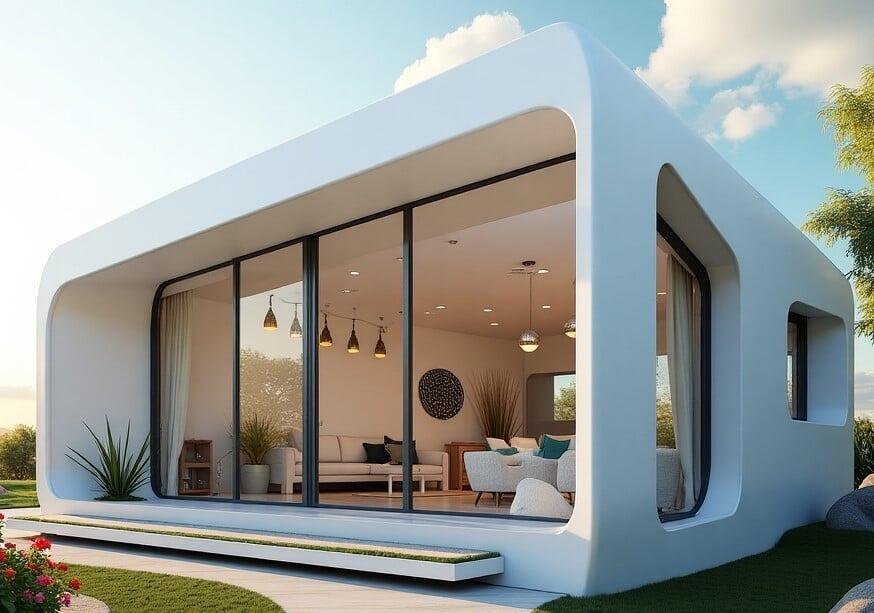Introduction
Accessory Dwelling Units (ADUs) continue transforming California’s housing landscape—from backyard studios to eco-smart granny flats. In 2023, ADUs made up nearly 20% of new permits statewide, with California experiencing a 20‑fold increase since 2016. San Diego and other urban areas are embracing this trend through streamlined permitting, sustainable design, and innovative financing.

1. Permit Surge & Homeowner Sentiment
- Permit growth: California issued ~26,924 ADU permits in 2023; Bay Area alone had ~2,761. Early 2024 data shows a continued 10% rise.
- Public buy‑in: A 2024 Samara survey reports 66% of California homeowners have considered adding an ADU, and 87% support neighbors doing so
2. Regulatory Developments
Building height & setbacks: Standard height now 16 ft, with up to 25 ft for attached or transit proximity units. Setbacks: 4 ft side/rear; under‑800 sf ADUs may have zero front setback.
Fee reforms: No impact fees for ADUs under 750 sf; larger ones pay at final inspection instead of upfront.
Preapproved plans: AB 1332 mandates pre‑approval of ADU plan templates, with agencies granting or denying detached ADU permits within 30 days if they match approved plans.
Legal conversions & sales: AB 1033 now allows ADUs to be sold separately, enabling condo-style transactions.
Home Opportunity & More Efficiency (SB 9): Up to 8 detached ADUs per parcel under certain conditions.
3. Design & Construction Trends
Sustainability focus: Solar panels, water-wise landscaping, rainwater harvesting, LEED-style certifications, and energy-efficient insulation/heat pumps are trending.
Compact & modular builds: Prefab and modular ADUs—with multifunctional layouts and smart storage—are gaining traction, delivering cost and time efficiencies.
Multigenerational setups: ADUs increasingly serve as independent living spaces for aging parents or adult children.
Tech integration & luxury touches: Smart thermostats, security systems, premium finishes, and soundproofing are becoming common in higher-end units .
4. Financing & Support Programs
ADU-specific financing: Home equity loans, HELOCs, and specialized ADU mortgages are mainstream.
Grants & subsidies:
CalHFA grant: Up to $40,000 for pre-construction costs.
San Diego Housing Commission: Construction-to-permanent loans up to $250,000 at 1% fixed interest, with affordable rent requirements for 7 years.
State & federal programs: LEAP, REAP, CDBG, and local incentives support ADU construction.
5. Challenges & Constraints
Utility delays: PG&E backlog has slowed many Bay Area projects, exacerbating waste in scheduling.
Local pushback: Some neighborhoods appeal to maintain character; initial ADU laws in cities like San Diego continue evolving.
State vs. local rules: California laws override local ordinances, but cities must still align local codes as deadlines wind down.
6. What Lies Ahead in 2025
Modular ADU boom: Faster, eco-effective prefab ADUs are anticipated to dominate the market.
Financing innovation: Tailored mortgages and lending for ADU developers are emerging .
Eco‑smart standardization: Sustainability features may become baseline expectations.
Policy refinements: Expect rolling updates in construction timelines, permit pre-approval, impact fee waivers, and coastal/regional adaption via AB 434, SB 1077, and others
FAQ
Conclusion
The ADU landscape in California and San Diego is dynamic—with surging permits, favorable laws, and sustainable designs. As prefab builds become mainstream and finance options expand, ADUs remain a powerful solution to housing crunches, aging-in-place, and rental market evolution. Stay informed of emerging incentives, utility timelines, and code changes as you consider your project.
Related Articles:
Top ADU Permit Builders in San Diego, California

